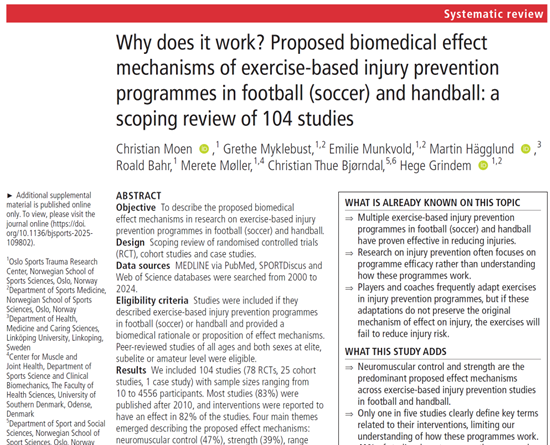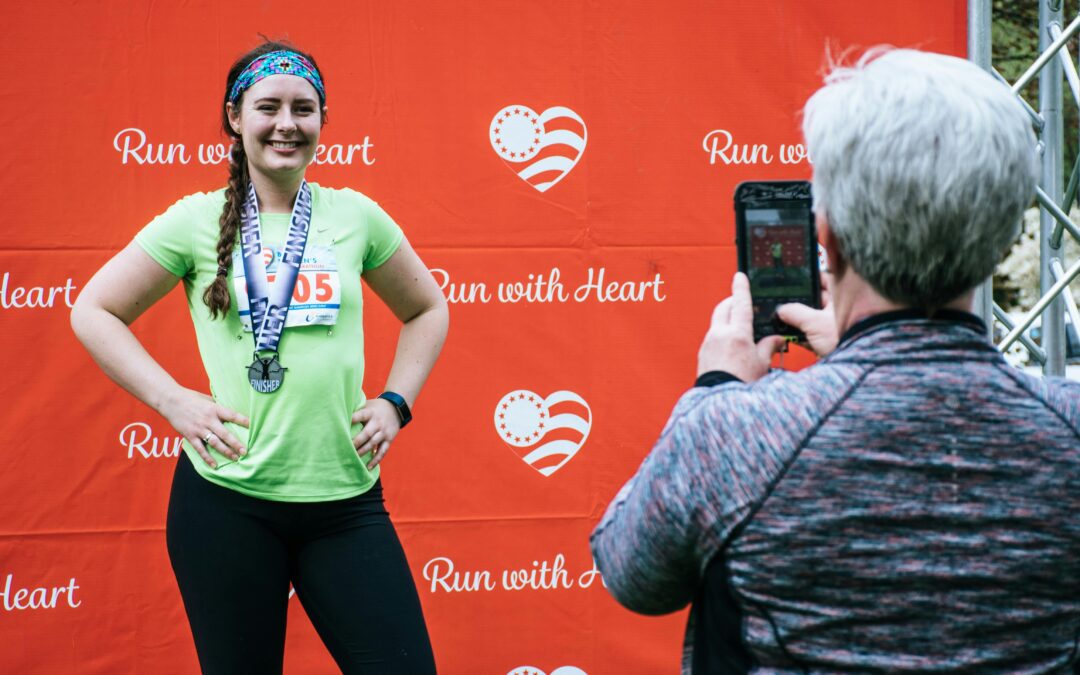Understanding How Injury Prevention Programs Actually Work: New Research Insights
A fascinating new study published in the British Journal of Sports Medicine sheds light on an important question: why do injury prevention programs work?
The Research
Researchers reviewed 104 studies on exercise-based injury prevention programs in soccer and handball, examining what mechanisms scientists believe make these programs effective. The findings reveal both promise and gaps in our understanding.
Key Findings
The predominant mechanisms identified were:
- Neuromuscular control (47%) – improving how the nervous system coordinates muscle activation during movement
- Strength (39%) – building capacity to handle forces and loads
- Range of motion (11%)
- Physical fitness (3%)
The good news? 82% of the interventions studied were reported to have positive effects in reducing injuries.
The Concerning Gap
Here’s where it gets interesting: only 19% of studies clearly defined their key terms, and 41% didn’t actually measure the mechanisms they claimed were responsible for injury reduction.
Think about that; we know these programs work, but we’re not always certain why they work.
Why This Matters
Understanding the mechanisms behind injury prevention is crucial for several reasons:
- Program Adaptation: Athletes and coaches often modify exercises. If we don’t know which components are essential, modifications might eliminate the protective effect.
- Efficiency: Knowing what works allows us to design more targeted, time-efficient programs.
- Individualization: Better mechanistic understanding enables us to customize programs for specific athletes and injury risks.
Practical Takeaways
For athletes and coaches using injury prevention programs:
- Follow evidence-based protocols – This is why PreventIQ programs are built on research-backed principles targeting neuromuscular control and strength
- Focus on neuromuscular control and strength – these appear to be the most important elements, which is exactly what our 8-week programs emphasize
- Complete the full program – until we fully understand all mechanisms, consistency matters
- Monitor injury rates when making any program adaptations
How PreventIQ Programs Apply This Research
The Injury Prevention Project’s PreventIQ programs align directly with these research findings:
- Targeted approach: Separate 8-week programs for ACL, running, hamstring, and foot/ankle injuries
- Evidence-based: Built on the same neuromuscular control and strength principles identified as most effective
- Accessible: Low-cost, nonprofit model makes evidence-based prevention available to all athletes
- Comprehensive: Programs address the specific mechanisms needed to reduce injury risk in each body region
The research reminds us that while we’ve made great strides in injury prevention, there’s still much to learn about the “why” behind what works. As we continue to refine our understanding, the goal remains the same: keeping athletes healthy and on the field.
Ready to reduce your injury risk? Explore our PreventIQ programs and discover which 8-week program is right for you.





0 Comments